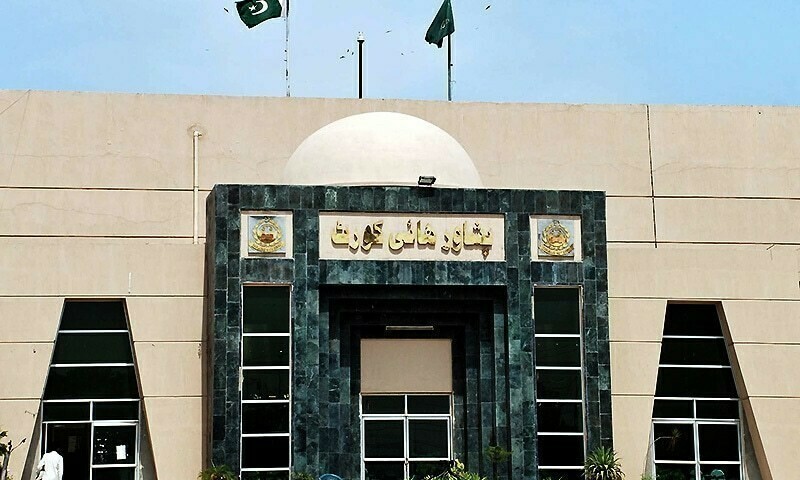The Peshawar High Court (PHC) on Wednesday barred till tomorrow (March 7) the oath-taking of the beneficiaries that were given the National Assembly reserved seats the Sunni Ittehad Council (SIC) contests should have been allocated to it.
The order was issued on a petition filed by the Sunni Ittehad Council (SIC) — which was joined by PTI-backed independents who won the elections sans their electoral symbol — challenging the Election Commission of Pakistan’s decision to reject the party allocation of reserved women and minority seats.
In a 4-1 verdict earlier this week, the electoral watchdog ruled that the SIC was not entitled to claim quota for reserved seats “due to having non curable legal defects and violation of a mandatory provision of submission of party list for reserved seats which is the requirement of law”.
The commission had also decided to distribute the seats among other parliamentary parties, with the PML-N and the PPP becoming major beneficiaries. Meanwhile, the verdict was rejected by the PTI as unconstitutional and the party vowed to challenge it.
Today, a two-member PHC bench comprising Justice Ishtiaq Ibrahim and Justice Shakeel Ahmad took up a petition filed by PTI-SIC challenging the commission’s order.
In its judgement, a copy of which is available with Dawn.com, the court issued a pre-admission to the ECP and all the respondents in the case. It also listed these questions that needed to be determined:
- Whether the court has the jurisdiction to adjudicate on the matter or not?
- Whether the petitioner has locus standi to file the petition?
- Whether the petitioner is entitled to claim the quota for reserved seats for women and non-Muslims in view of the Constitution, Elections Act and Elections Rules?
- Whether the defect of non-submission of lists for reserved seats is not curable under the law?
- Whether the seats for women and non-Muslims in the National Assembly can be kept vacant or are liable to be allocated by proportional representation process on the basis of seats won by political parties?
- Whether the ECP has misconceived and misinterpreted the provision of the Constitution, Elections Act and Elections Rules?
The court further referred the matter to the PHC chief justice for the constitution of a larger bench to “adjudicate upon the intricate constitutional questions involved in the matter”.
The bench issued notices to the Attorney General for Pakistan and the Khyber Pakhtunkhwa Advocate General to assist the court.
“Notice to respondent 1 [ECP] for March 7. Till then respondents number five to 22 shall not be administered oath by the Speaker National Assembly,” the court added.
The hearing
At the outset of the hearing, PTI lawyer Qazi Anwar contended that members of the party were forced to contest elections as independent candidates after being deprived of the electoral symbol ‘bat’.
“After emerging victorious, these PTI-backed independents joined the SIC,” he said. Anwar contended that independent candidates should have been free to join a political party within three days after the election results were announced as per the ECP’s rules.
“The PTI emerged victorious on 98 general seats in the National Assembly,” the lawyer stated, adding that the SIC was supposed to be allotted 22 reserved seats.
The lawyer further elaborated that 21 women reserved seats and four minority seats were distributed among other political parties in Khyber Pakhtunkhwa.
Here, Justice Ibrahim asked if the case was linked to the reserved seats in the provincial assembly or the National Assembly. “The ECP issued a single verdict,” the PTI counsel replied, arguing that the SIC-PTI reserved seats could not be “legally or constitutionally” allocated to other parties.
“These seats are reserved for women and minorities, what will happen if you are not allotted the seats? Will they remain vacant?” Justice Ibrahim inquired.
Meanwhile, Justice Ahmad highlighted that the Election Act, 2017 made it mandatory for a political party to submit its list for reserved seats before the polls.
At one point, the PTI lawyer demanded that lawmakers who had been allotted reserved seats be stopped from taking oath.
Subsequently, the bench reserved its verdict in the case.







